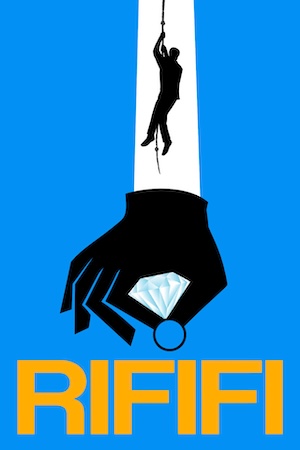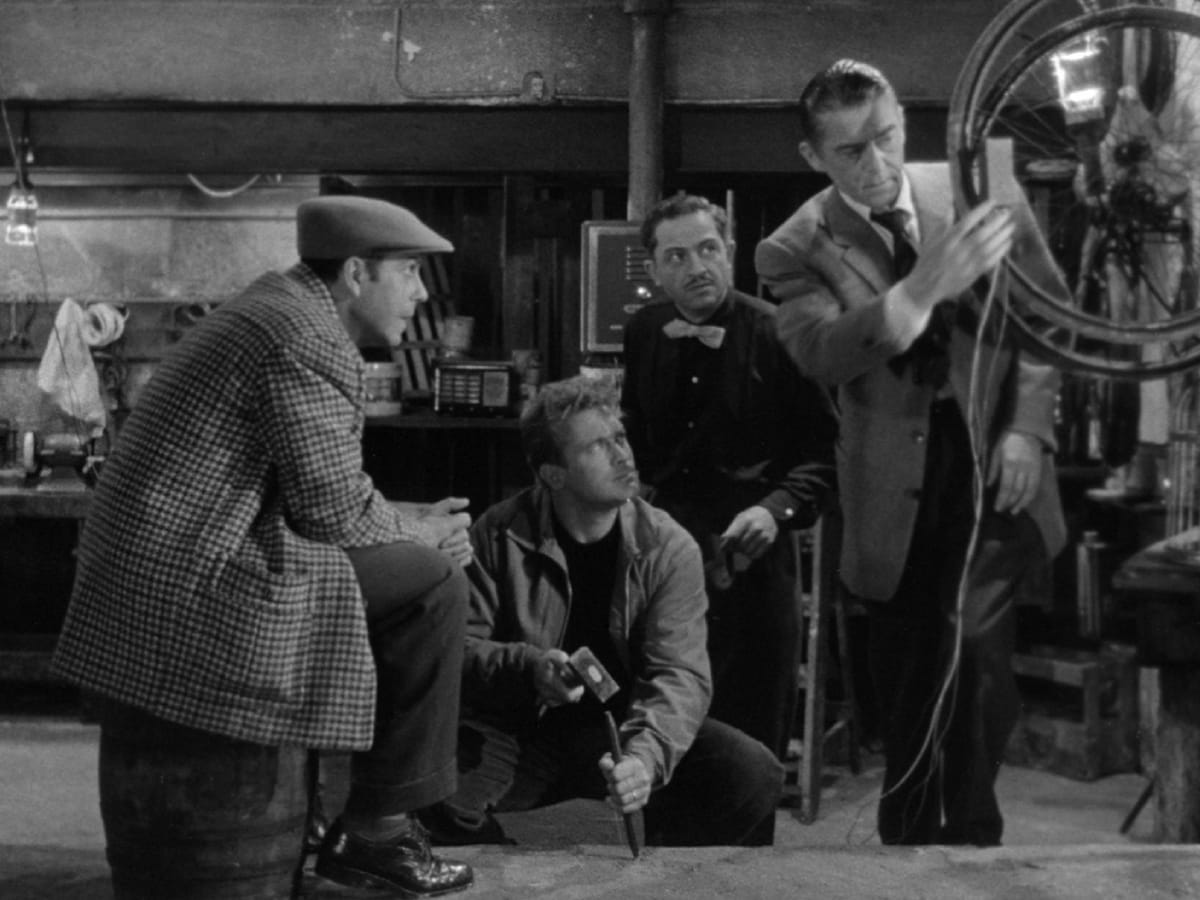
I’ve been working backwards to Rififi. Oh, I’ve seen earlier heist films. The Lavender Hill Mob came out in 1951, but it’s as much a comedy as a heist. Many of the conventions of the modern heist genre come from two French noirs, released a year apart: Rififi in 1955 and Bob le Flambeur in 1956. You can trace a direct line from Mission: Impossible, the Pink Panther movies, Topkapi, and others, straight back to Rififi. It was time that I saw it the original, and was not disappointed.
Rififi opens with Tony (Jean Servais) getting booted from a poker game because he’s out of cash. Tony’s just out of prison and his girl left him for a gangster. Tony’s friend Jo (Carl Möhner) tries to get him interested in a smash-and-grab job at a jewelry store that he’s been planning with his buddy Mario (Robert Manuel). Tony’s not so sure, but eventually agrees and ups the ante by adding Cesar, a safecracker from Milan (played by Jules Dassin, the film’s director).
This is the the usual assembling-the-crew stuff, but it plays longer than it does in derivative works. We meet Mado, Tony’s ex (Marie Sabouret). He’s abusive to her, but she might still be in love with him. We meet Jo’s wife Louise (Janine Darcey) and their young son Tonio. Tony dotes on Tonio. Mario and his wife Ida (Claude Sylvain) have a tempestuous relationship but are clearly infatuated with each other. Cesar has an eye for the ladies, and his relationship with the nightclub singer Viviane (Magali Noël) will have tragic consequences for multiple people.

The centerpiece of the film is the oft-imitated heist sequence. Roughly 30 minutes long, it plays in almost absolute silence. No speaking. No music. No sound of any kind that isn’t diegetic, and the characters are at pains to avoid making any. It’s a triumph.
What comes next isn’t imitated as often–we have entire final act in which everything falls apart. The gang experiences no real trouble getting away, but a score as big as theirs will get other people interested.[1] The police offer a reward, but Grutter (Marcel Lupovici), Tony’s rival for Mado’s affections, figures on stealing the jewelry himself. By chance he sees Viviane wearing a ring unwisely given to her by Cesar, and realizes that Cesar was involved in the plot. Grutter starts working his way back through the gang.
For 1955, the film goes hard, probably harder than any American film of the period. By the end of the film the gang is dead, Grutter is dead, Tonio has only just escaped a bad end (though no worse for it), and the money from the fenced goods is in the hands of the police. This is something of a traditional morality play, although there are no speeches and the police are barely on-screen. Tarantino has talked about Rififi’s influence on him, and Reservoir Dogs owes an obvious debt.
I thought a little about The Third Man while watching this. About the distance between Vienna in 1949 and Paris in 1955. The Paris of 1955 is prosperous, and the war casts no shadow. Still, it’s fall, and it’s wet and it’s gray and almost claustrophobic. You feel like everyone in the criminal underworld knows everyone else, and what their business is. There aren’t any heroes in Rififi.
Recall Hans Gruber in Die Hard: “Well, when you steal $600, you can just disappear. When you steal 600 million, they will find you, unless they think you’re already dead.” ↩︎